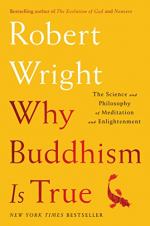|
This section contains 937 words (approx. 3 pages at 400 words per page) |

|
Summary
Though nirvana includes bliss, the two are not interchangeable. Nirvana also entails far more, such as peace, freedom, and understanding. Within Buddhism, nirvana is a special state in that it spans both sides of Buddhism. The psychological, philosophical side as well as the supernatural, religious side accept nirvana as the escape from an endless cycle of rebirth.
Nirvana is often translated as unconditioned, which essentially means uncaused. The concept of causality is central to the Buddhist view of life, in that the causal links are what allow the endless cycle of rebirth for almost all humans. One link here is tanha, the desire and cravings discussed earlier in this book. While nirvana offers liberation from the rebirths, nirvana also offers liberation from the endless suffering that tanha will inevitably produce.
It comes in two stages. There is nirvana in this life...
(read more from the Nirvana in A Nutshell Summary)
|
This section contains 937 words (approx. 3 pages at 400 words per page) |

|




